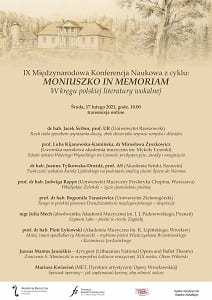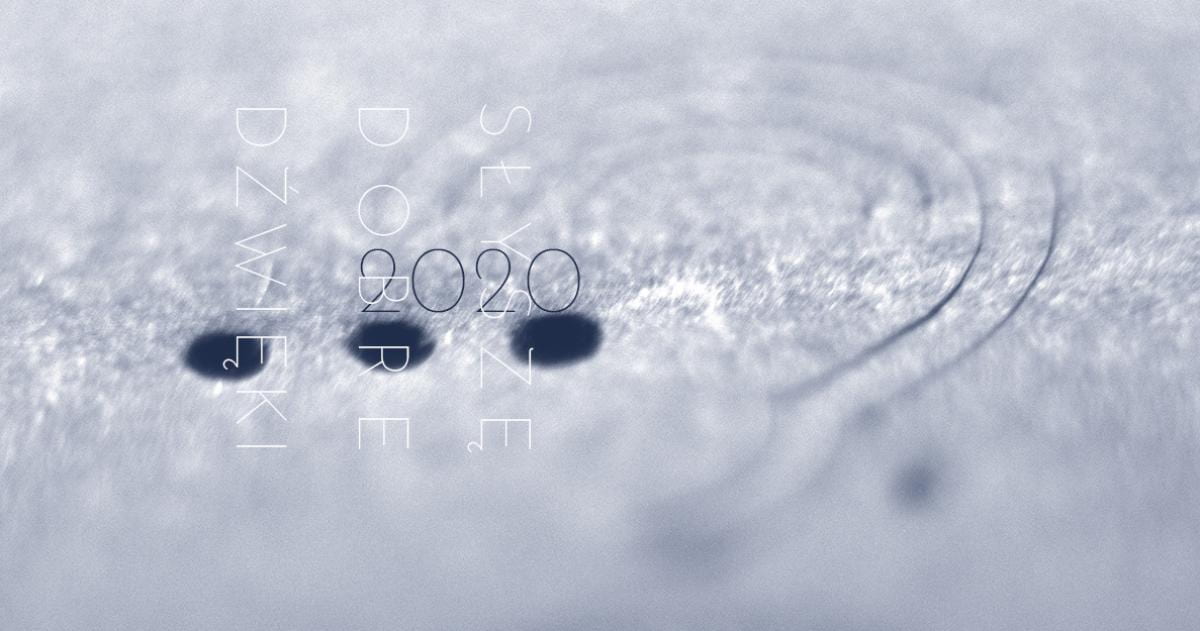“Hear the Future” from Szczecin
What will the future sound like? On 16 February 2021, the Mieczysław Karłowicz Philharmonic in Szczecin held a conference to explore just that. As part of the campaign “I hear good sounds,” various research perspectives of acoustic ecology—in anthropology, philosophy, sociology, media studies—and in the fields of medicine—otolaryngology and neuropsychology—were presented. The online conference “Hear the Future – Challenges of Acoustic Ecology” was hosted on the ZOOM platform.
Our environment and public spaces are polluted with noise. Acoustic ecology proposes solutions in this area. The conference attempted at a comprehensive insight into Polish reflection on acoustic ecology. Representatives of the scientific community, activists from the third sector, employees of companies related to acoustics and medical centers exchanged their experiences as part of the nationwide symposium. Theoretical reflections were confronted with artistic and pedagogical practices.
In attendance were, among others prof. Dariusz Brzostek (Nicolaus Copernicus University in Toruń), prof. Tomasz Misiak (University of Arts in Poznań), Dr. Jadwiga Zimpel (Adam Mickiewicz University in Poznań), Dr. Anna Dąbrowska (International Center of Hearing and Speech Medincus ). Composer Anna Zaradny delivered a speech on Sound and Architecture, Senses and Space / Illusion and Deep Listening. Composer Michał Janocha talked about modern applications and technological solutions useful in ear training. On the other hand, musicologist Krzysztof B.a Marciniak (“Glissando”) presented his reflections on the Ecology of Sound. We learned to listen anew. Participants were sent a link to the event, conference materials and a certificate of participation.
“Moniuszko in memoriam” from Poznań
 Also held online this week, the 9th International Scientific Conference in the series “Moniuszko in memoriam – Polish vocal literature” was hosted by the Ignacy Jan Paderewski Academy of Music in Poznań on 17 February 2021. The conference introduced and promoted the life and vocal works of Stanisław Moniuszko and other Polish artists.
Also held online this week, the 9th International Scientific Conference in the series “Moniuszko in memoriam – Polish vocal literature” was hosted by the Ignacy Jan Paderewski Academy of Music in Poznań on 17 February 2021. The conference introduced and promoted the life and vocal works of Stanisław Moniuszko and other Polish artists.
In attendance were speakers representing various educational centers and cultural institutions in Poland and around the world. These included prof. Jacek Ścibor (University of Rzeszów), prof. Luba Kijanowska-Kamińska and Mirosława Żyszkowicz (Mykola Łysenko Lviv National Academy of Music), prof. Joanna Tylkowska-Drożdż (Academy of Art in Szczecin), Juozas Mantas Jauniškis (Lithuanian National Opera and Ballet Theatre), and Mariusz Kwiecień (the Metropolitan Opera in New York, artistic director of the Wrocław Opera).
Musicologists and musicians presented the results of their latest research on the Vilnius period of Stanisław Moniuszko’s activity, Walery Wysocki’s School of Singing in Lviv, and Karol Lipiński’s vocal work. Prof. Jadwiga Rappé (The Fryderyk Chopin University of Music in Warsaw) discussed Władysław Żeleński’s songs. Julia Mech (a graduate of the Ignacy Jan Paderewski Academy of Music in Poznań) gave a presentation entitled Szymon Laks – Songs in the Shadow of the Holocaust. Prof. Piotr Łykowski (Karol Lipiński Academy of Music in Wrocław) presented a paper devoted to the less known successors of Moniuszko: Wieńczysław Brzostowski and Kazimierz Jurdziński. Prof. Bogumiła Tarasiewicz (University of Zielona Góra) talked about the genre of tango in Polish songs of the interwar period.
